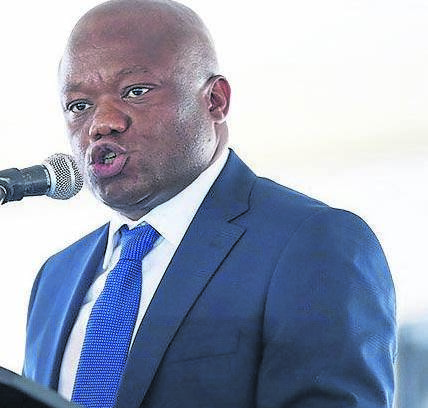
As Durban’s largest private hospital enters its third day of total closure for a final deep clean, there seems to be no sign that the provincial government will allow it to reopen any time soon.
And a document, seen by City Press, revealed how one of the reasons for the start of the Covid-19 coronavirus surge among staff and patients at St Augustine’s Hospital might have occurred because of the protocols in place at the time, as set down by the National Institute for Communicable Diseases (NICD).
Meanwhile, KwaZulu-Natal Premier Sihle Zikalala denied he was being “harsh” on the private hospital group and not enforcing the same level of scrutiny in the public sector.
St Augustine’s, one of the flagships of the Netcare Group, has about 600 beds. The facility houses more than 30 medical disciplines and includes various specialised facilities, such as a dialysis unit and more than 80 ventilation-capable ICU beds.
But the hospital has not taken in any new patients since April 2, when 66 people – including 48 staff members – tested positive for Covid-19.
Another Netcare facility, Kingsway Hospital in Amanzimtoti, had been closed since April 14 because of Covid-19-related cases among staff.
READ: Inside the hospital of death - St Augustine’s battles Covid-19 stigma
On Thursday, the last remaining patients at St Augustine’s were discharged. By 7pm, the main hospital complex was closed for a final deep clean – several had taken place since its initial closure of certain wards. Staff would be allowed to return only on Friday.
It is understood that the hospital group was keen to have the closures of both its KwaZulu-Natal facilities lifted, but that decision rested with the province.
Zikalala denied allegations that he was flexing his muscles when it came to dealing with the province’s private healthcare sector, and was seriously downplaying the state of the public sector.
He told City press that the insinuation that the provincial government was being “harsh” on the private sector was “misplaced, unfounded and unfortunate”.
“What matters right now is not how ‘harsh’ or ‘soft’ the government needs to be. If there are grounds to investigate perceived negligence on the part of healthcare practitioners or their managers, be it in the private or public health sector, due scrutiny and consequence management must ensue.”
Health MEC Nomagugu Simelane-Zulu would not say when St Augustine’s and Kingsway would reopen. It would depend on an ongoing investigation, she said.
“Investigations into the matters that you raise are still ongoing. The health department again asks for patience and will communicate on these matters at the appropriate time,” said her spokesperson, Ntokozo Maphisa.
The Netcare Group would also not comment on when its facilities would open.
“The hospitals remain closed and will be reopened under the guidance of the KwaZulu-Natal health department,” Netcare coastal director Craig Murphy told City Press.
Several health workers at St Augustine’s, who spoke to City Press on condition of anonymity, said the prolonged closure was not only affecting their livelihoods, but also potentially placing the lives of patients at risk.
READ: Covid-19 - Fear grips vulnerable KZN health workers
The details of how St Augustine’s recorded such high Covid-19 cases was contained in an eight-page PowerPoint presentation made to the ministerial advisory committee last month.
The committee, chaired by Professor Salim Abdool Karim, had been playing a critical role in the country’s Covid-19 response. It reported directly to Health Minister Zweli Mkhize.
Ms P - Patient zero
Titled Lessons from the SA Covid Epidemic, and accredited to Yunus Moosa, the head of the department of infectious diseases at the University of KwaZulu-Natal, the document detailed how an 81-year-old patient, known as “Ms P”, might have contracted the disease without knowing she had been in contact with someone considered high risk for the virus.
The document provided a timeline using Ms P as the case study as she was believed to be St Augustine’s patient zero.
It outlined how Ms P was brought to the hospital’s outpatient emergency department in the middle of March, presenting symptoms of a stroke. After a week in hospital, first in high care and then in a general ward, and with no other major medical events occurring, she was “discharged to the nursing home”.
However, a week later, after she had been in the sick bay struggling with a fever and cough, Ms P was readmitted to the hospital and taken to ICU after it was noted she was in “severe respiratory distress”.
The document said “concerns about Covid were raised”, but, after contacting the NICD, St Augustine’s was “advised not to test”.
The NICD’s decision was based on its March 26 decision about what criteria needed to be met to test for the virus.
The document stated that Ms P must have acquired the virus a few days after the country’s first known case was reported, which was on March 5. At this time, there were “no documented community transmissions”. Ms P had been at the hospital and the nursing home two weeks prior to this.
The strongest possible contact would have come from an outpatient when Ms P was first brought to the emergency room after her stroke, the document said.
“[The] outpatient was screened at a station outside the emergency department … [and] … directed to an isolation room. [This] opened into the emergency resuscitation bay area where Ms P was housed.
“[The] outpatient was assessed by [a] nurse and doctor practising [while wearing] personal protective equipment. Ms P and the outpatient had the same doctor. [This] created a strong link to a probable source of infection – a droplet, direct or indirect contact through fomites [objects or material that are likely to carry infection, such as clothes and utensils].”
The two key lessons learnt were that there should be a “high index of suspicion in epidemic situations” with all outpatients, and that there should be two separate areas for potential or confirmed Covid-19 patients and non-Covid-19 patients.
Moosa emphasised that the presentation document was deliberately anonymous in the interests of patient confidentiality.
He said that “the lessons are well-recognised approaches”.
“They are based on logic and sense. If people who are infectious are kept separate from people who are not infectious, then transmission is not likely to occur, but, clearly, if there are any areas of mixing, as small as this area might be considered, there is a risk of transmission,” said Moosa.
He said he was not aware of any hospitals that easily divided into two with no common area.
Asked to comment on the presentation, Maphisa told City Press: “The MEC has not seen the report and is therefore unable to make any pronouncements regarding it.”
READ: Nurse’s death sparks renewed KZN scrutiny
 | ||||||||||||||||||||||||||
Get in touchCity Press | ||||||||||||||||||||||||||
| ||||||||||||||||||||||||||
| Rise above the clutter | Choose your news | City Press in your inbox | ||||||||||||||||||||||||||
| City Press is an agenda-setting South African news brand that publishes across platforms. Its flagship print edition is distributed on a Sunday. |




 Publications
Publications
 Partners
Partners








